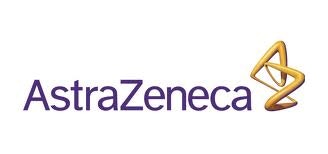Recently, AstraZeneca plc (ADR) (NYSE:AZN) announced that it has agreed to acquire Pearl Therapeutics, the respiratory drug manufacturer, in a transaction worth around $1.15 billion. Since the beginning of the year, AstraZeneca plc (ADR) (NYSE:AZN) has gained more than 8%, lagging the S&P 500’s return of more than 14.7%. Is AstraZeneca plc (ADR) (NYSE:AZN) a good buy after its recent acquisition? Let’s find out.
Synergy between AstraZeneca plc (ADR) (NYSE:AZN) and Pearl Therapeutics
AstraZeneca plc (ADR) (NYSE:AZN) is considered a big player in the cardiovascular field, generating more than $9.53 billion, or 34% of total revenue in 2012. It also derived a significant portion of its top line from respiratory & inflammation products to the tune of $4.4 billion, accounting for 14.8% of total sales in 2012. Its iconic brand in Respiratory & inflammation segment is Symbicort, producing nearly $3.2 billion in sales.
The acquisition of the privately-held Pearl Therapeutics would give AstraZeneca plc (ADR) (NYSE:AZN) exposure to the treatment of chronic obstructive pulmonary disease (COPD), which is in late-stage development. AstraZeneca CEO Pascal Soriot felt excited about this acquisition. He said: “Chronic obstructive pulmonary disease continues to increase worldwide and there is a growing need for the next generation of inhaled combination products. Pearl’s novel formulation technology, together with its development products and specialist expertise are a great complement to AstraZeneca’s long-established capabilities in respiratory disease, one of our core therapy areas.”
He strongly believes that Pearl Therapeutics would give AstraZeneca various treatment options, strengthening the company’s respiratory portfolio. Interestingly, AstraZeneca only has to pay $560 million on completion, and the remaining $450 million would be paid if certain development milestones are achieved.
AstraZeneca expects a sharp fall in both sales and profit in 2013, but the long-term should be brighter with the ongoing business restructuring under the leadership of new CEO Pascal Soriot. He has decided to suspend share buybacks and dividend increases to reserve cash for acquisitions and in-house R&D, which would boost the company’s long-term prospects. The market values AstraZeneca at only 9.9 times its forward earnings.
The cheapest but paying the highest dividend yield
Compared to its peers GlaxoSmithKline plc (ADR) (NYSE:GSK) and Novartis AG (ADR) (NYSE:NVS), AstraZeneca is much cheaper. GlaxoSmithKline plc (ADR) (NYSE:GSK) is trading at around $52.80 per share with a total market cap of nearly $128 billion. The market values GlaxoSmithKline plc (ADR) (NYSE:GSK) at a higher valuation at 12.3 times its forward earnings. In the beginning of May, it announced that its product, BREO ELLIPTA, had received FDA approval to treat patients with chronic obstructive pulmonary disease.



